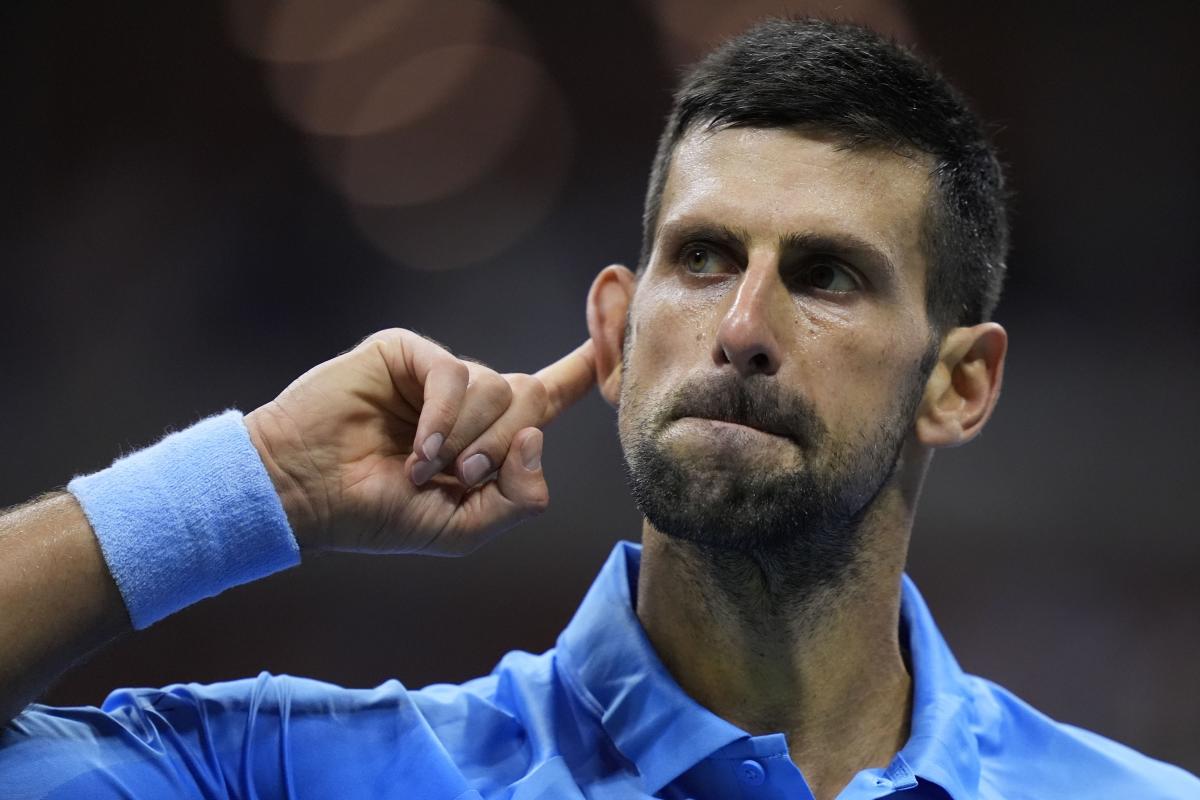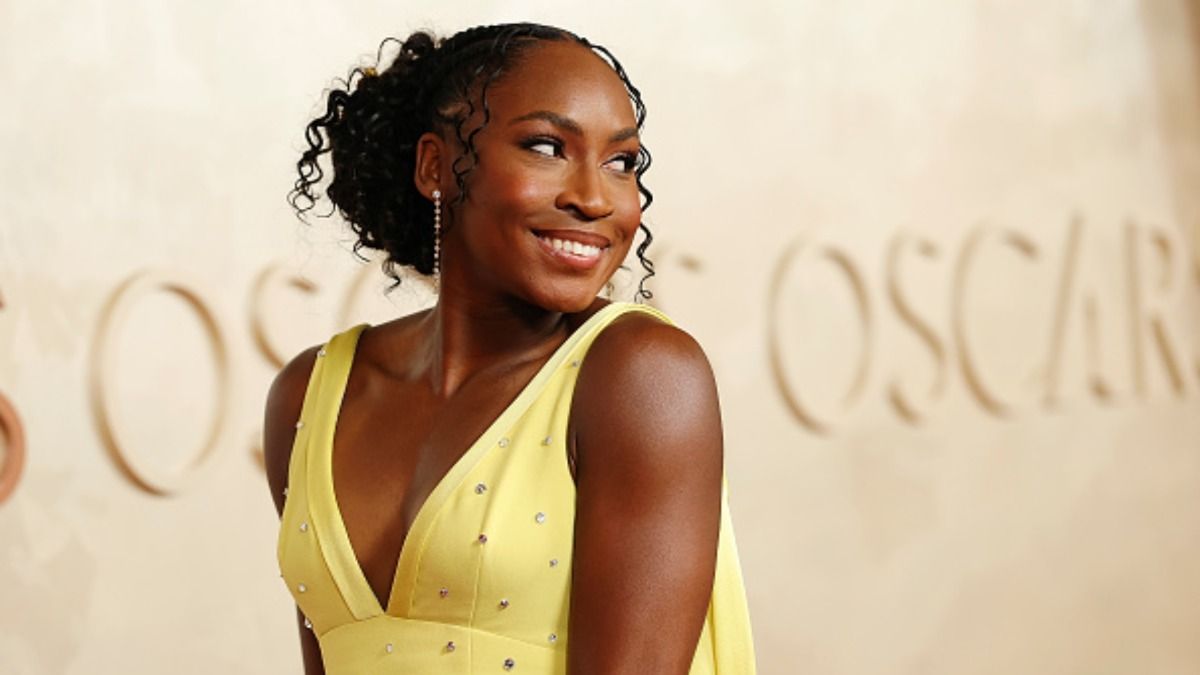US Open: 4 years later, what is happening with Djokovic’s Professional Tennis Players Association?

NEW YORK (AP) — The photo is, in many ways, a snapshot of a rather specific moment in time — August 2020, during the COVID-19 pandemic — but it also remains a symbol of what Novak Djokovic and other players hope could end up being an important moment for the future of tennis.
Still preserved on social media, the picture shows dozens of athletes — all men, all wearing medical masks — standing in Arthur Ashe Stadium on the eve of that year’s U.S. Open, announcing the formation of the Professional Tennis Players Association. Four years later, as this U.S. Open approaches its conclusion on Sunday, the group known as the PTPA has started doing the sorts of things the players who started it, Djokovic and Vasek Pospisil, had in mind back then, but also has some wondering whether it ever can become the sort of full-fledged union that negotiates collective bargaining agreements as in other sports.
“That’s ultimately the goal,” said Hubert Hurkacz, a top-10 player from Poland who was a semifinalist at Wimbledon in 2021.
Plenty of players say they believe the PTPA can succeed. So, naturally, does its executive director, Ahmad Nassar, who was hired two years ago for what he calls a “reboot” of a body that he said quickly realized the “admitted misstep” of having just male players involved at the outset and soon welcomed women, some of whom are among its leadership.
“It is player-led. It was player-founded. And it was founded by players who were frustrated with the current system,” Nassar said. “Fine appeals. Anti-doping appeals. … Scheduling. What do you do when it rains four days in a row? There’s a role for an independent players’ organization in all of that. Not all players are going to necessarily care, but the ones who are affected will.”
There are questions from some about whether what’s stood in the way of forming something like this in the past will create obstacles for the PTPA: Unlike in leagues such as the NFL, NBA, NHL, Major League Baseball or the MLS, competitors in tennis are independent contractors.
Getting them all on the same page, and figuring out a way to represent their interests with the many decision-makers — the WTA, the ATP, the International Tennis Federation, those in charge of the U.S. Open, Wimbledon, French Open and Australian Open — isn’t easy.
“Tennis is a really hard sport for what they’re trying to do, so I don’t really know if it’s going to work,” said Jessica Pegula, an American who will play Aryna Sabalenka in Saturday’s final at Flushing Meadows and is a member of the WTA Player Council. “When you see other sports making big changes, it is because they have a union or CBA, where players actually come together. So unfortunately, I don’t know if our sport is (too) difficult for making that sort of change.”
This isn’t the first time this type of thing has been discussed.
“I remember, in the mid-’90s, having these conversations when I was just getting on tour myself. Fighting for more prize money or whatever it might be,” said Tommy Haas, a retired player who now is the tournament director at Indian Wells, California. “The PTPA and what they’re doing — their minds and their hearts are in the right places.”
Andy Roddick, the 2003 U.S. Open champion, engaged in a back-and-forth on social media this week with Pospisil and Nassar over what, exactly, the PTPA has accomplished and whether it’s meaningful.
Djokovic, a 24-time major champion, is eager to share his thoughts on what it could do.
“There is a huge space for growth,” he said at Wimbledon, touching on the need to reach a younger audience, improve the commercialization of tennis and broadening the number of players who can make a living as pros. “So there’s quite a bit of things for us to really collectively look at.”
When asked about No. 1-ranked Jannik Sinner’s doping case on the eve of the U.S. Open, Djokovic spoke about those sorts of matters being “the very reason we founded PTPA.” Djokovic also cautioned that the group “has not yet been, I think, acknowledged as much as we would like it to be acknowledged in the ecosystem. Many reasons why, but I’m not going to get into that.”
Nassar points to steps such as group sponsorship deals like with a trading cards company — from which PTPA takes a cut; it doesn’t collect membership dues from players — and arrangements for medical and mental health assistance.
“I got connected with one of the doctors in their their medical program,” said Ingrid Neel, a doubles player who represents Estonia. “There’s a few things about the tours, some rules, that aren’t perfect — and the PTPA has talked about them. … I don’t think anyone would disagree that the ATP and WTA can only be helped if players’ voices are heard.”
Nassar thinks it’s important that the people the PTPA represents are aware of it.
“When the inevitable bad things happen, players and agents are starting to reach out to us. ‘Hey, I got this anti-doping thing’ or ‘Hey, I’m stuck at an airport. Can you help?’” Nassar said. “We don’t have magic wands, but I think in every situation, the players felt like we heard them. That’s validation.”
As for what’s to come?
“We’re in the business of doing what we said we’re going to do,” he said. “It just takes a while.”
___
AP tennis:
Related
Danielle Collins prepares gift for Djokovic as she continues at…
Danielle Collins has vowed to gift Novak Djokovic some of her merchandise after the Serb offered his support to the WTA star. Collins hasn’t been afraid to sp
“Second-Guessing Herself”: Jessica Pegula Unpacks the Inspiring Comeback of Newlywed…
What a year this has been for American women’s tennis! We’ve seen plenty of title triumphs, but if asked to single out one big win among those, it’d surel
Coco Gauff rarely gets…”: American tennis legend weighs in on…
A former American tennis superstar has leaped to Coco Gauff’s defense after the 20-year-old phenom faced backlash for her recent Oscars appearance—a glamoro
Novak Djokovic over LeBron James and Cristiano Ronaldo? American tennis…
A former American tennis great has sparked a firestorm in sports debates by declaring Novak Djokovic the greatest athlete of the modern era—surpassing icons l











